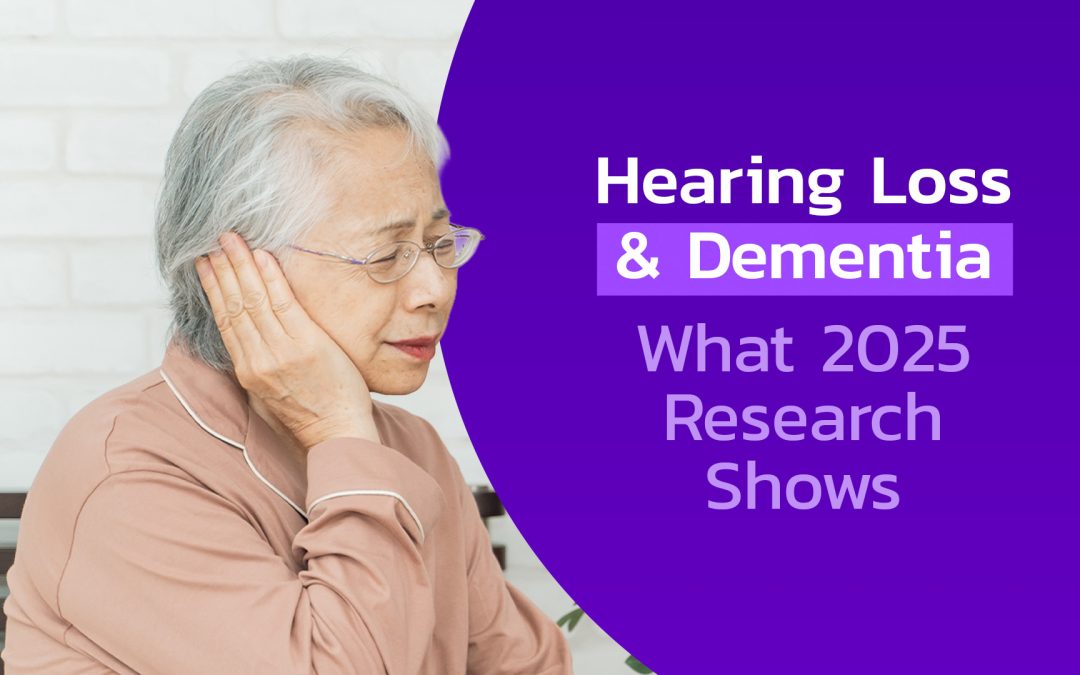Is there a connection between hearing loss and dementia?
Yes, growing research shows untreated hearing loss can increase the risk of dementia and other forms of cognitive decline. Scientists believe this is due to how the brain processes sound, with hearing difficulties placing extra strain on memory and thinking. Understanding the link between hearing loss and dementia highlights why early testing and treatment, including hearing aids, can play a vital role in protecting long-term brain health.
At Hearing Matters, we provide expert assessments and personalised support to help Australians stay connected and mentally sharp.
The Research on Hearing Loss and Dementia
Studies have shown that people with untreated hearing loss are more likely to experience cognitive decline compared to those with normal hearing. In fact, some research suggests the risk of dementia can be up to five times higher in those with severe hearing loss.
Importantly, hearing aids may reduce this risk. By improving communication and reducing listening effort, they keep the brain engaged and socially active. That’s why understanding your hearing loss levels and taking action early is so important.
Conditions like high frequency hearing loss or hidden hearing loss often go undetected, but even subtle changes in hearing can contribute to social withdrawal itself, a known risk factor for dementia.
Why Hearing Loss Affects the Brain
Researchers believe several mechanisms explain the connection between hearing loss and dementia:
- Cognitive load theory: The brain works harder to interpret muffled sounds, leaving fewer resources for memory and concentration.
- For a deeper dive into cognitive load theory and how it relates to hearing loss, the Pacific Neuroscience Institute has an excellent explainer on hearing loss and cognitive decline.
- For a deeper dive into cognitive load theory and how it relates to hearing loss, the Pacific Neuroscience Institute has an excellent explainer on hearing loss and cognitive decline.
- Social isolation: Struggling to hear often leads to withdrawal from conversations, which reduces mental stimulation.
- Brain changes: Lack of auditory input can cause structural changes in the brain over time.
Early Signs to Watch For
The symptoms of hearing loss can sometimes resemble early dementia signs, making it important to seek professional advice.
Watch out for:
- Difficulty following conversations, especially in noisy places
- Frequently asking “what?” or needing repetition
- Turning the TV or radio up louder than others prefer
- Forgetfulness that may actually be linked to missed hearing cues
- Withdrawing from social interactions
If these sound familiar, it’s worth searching for an ‘audiologist near me’ and booking a hearing test. Luckily for South Australians, Hearing Matters offers trusted audiology care through clinics conveniently located across the state.
The Role of Hearing Aids
Modern hearing aids don’t just make sounds louder, they improve clarity, reduce background noise, and even connect via Bluetooth to phones and TVs. By reducing the mental strain of listening, hearing aids can help protect against the risks linked to hearing loss and dementia.
Concerns about hearing aid prices or hearing aids cost sometimes stop people from seeking help, but there are affordable options available. At Hearing Matters, we provide a wide range of solutions, including government-subsidised devices for eligible pensioners. Even cheap hearing aids can provide meaningful benefits when properly fitted by an audiologist.
Why Testing Matters
The first step in protecting both your hearing and your brain is a professional test. Online tools can provide a rough idea, but only a qualified audiologist can fully assess your hearing. Testing reveals whether issues like high frequency hearing loss are present, even before you notice them.
By understanding your results, your audiologist can recommend the right solution, whether that’s monitoring, lifestyle advice, or fitting hearing aids. In Australia, clinics like Hearing Matters provide trusted, independent advice tailored to each patient’s needs.
Protect Your Hearing, Protect Your Brain
The evidence is clear: untreated hearing loss and dementia are linked, but action can reduce your risk. Early testing and treatment not only improve day-to-day communication, but also support long-term brain health.
👉 Don’t wait until hearing problems affect your memory and confidence. Book your free hearing test with Hearing Matters today and take the first step towards protecting both your hearing and your mind.
